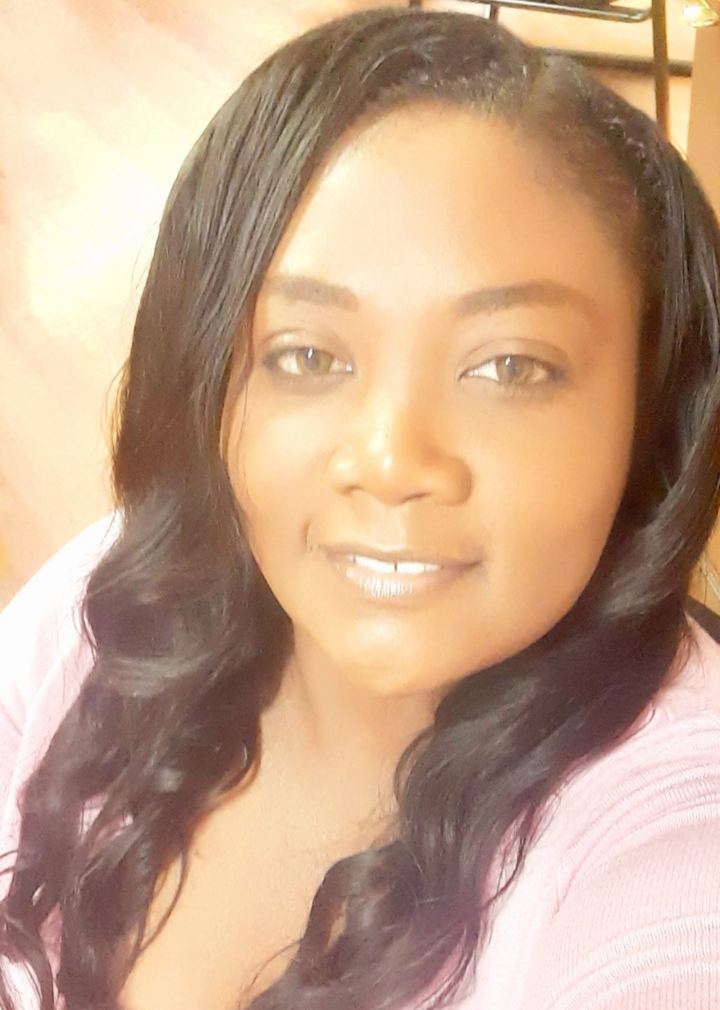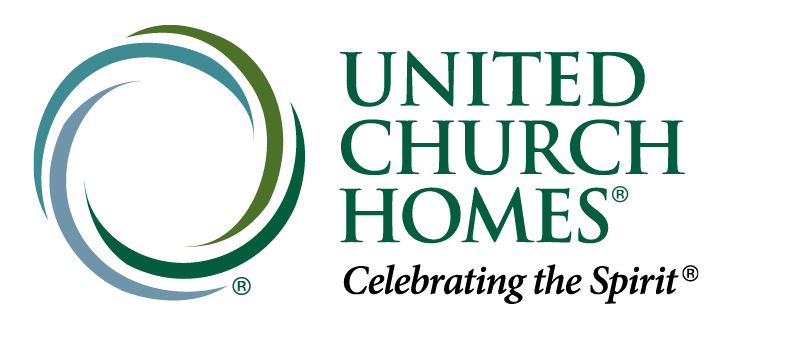
Highlights from this week’s conversation include:
Abundant Aging is a podcast series presented by United Church Homes. These shows offer ideas, information, and inspiration on how to improve our lives as we grow older. To learn more and to subscribe to the show, visit abundantagingpodcast.com.
Michael Hughes 00:07
Hi and welcome to Ask a NaviGuide, which is part of the Abundant Aging podcast series with United Church Homes. On this show, we tackle subjects in aging and family caregiving that can be stressful to work through. And we do this with tips and advice from United Church Homes NaviGuide team. Our NaviGuides have decades of experience helping families work through these issues. And we hope that what we share with the show will help everyone everywhere age with abundance. Today, we are lucky to have our NaviGuide Jennifer with us and who will help us to understand programs that might be out there to help older adults, residents of affordable housing and so on, to get broadband or WiFi connectivity. So if you know somebody that needs to get connected, maybe can’t afford it, this is the show for you. So Hi, Jennifer.
Jennifer Craft-Williams 00:51
Hi, Michael. Thank you for having me.
Michael Hughes 00:53
Thank you for being here. Before we started the show, just a quick note, opinions shared in this podcast are those of our amazing NaviGuides and your host, and are not meant to convey in or take the place of clinical legal or other professional advice. So now that we’ve gotten that out of the way, Jennifer, I always like to start out this way: you’re a NaviGuide at United Church homes. Can you explain to our listeners what that is, and how you found yourself in the role?
Jennifer Craft-Williams 01:17
Absolutely. As a NaviGuide service coordinator, my job is to coordinate programs and services to help my residents stay independent as they can for as long as they can to maintain professional relationships with the residents in the housing community to identify areas of need and make referrals to the community agency as needed. Also to promote wellness activities that include bids that may include scheduling health presentations, or on site mobile health care services. And last but not least, assist the residents in building informal supportive networks with residents, family members and friends.
Michael Hughes 01:57
It Was amazing. I mean, you work in the state of Mississippi, correct? Yes. Got it. Okay. So we may be talking about both state national available programs, maybe some programs also just available, Mississippi. So that’s all of that is fantastic. So today, we’re talking about programs that are available for low income residents, including seniors of affordable housing, or people that may be in a low income period, you know, that can help them get things like discounted cell phone plans, internet connection devices. Before we go into what these programs are. I want to ask you first, why do you think it’s so important for people to take advantage of these programs?
Jennifer Craft-Williams 02:32
I think that it’s important for people to take advantage of these programs, because it can help them save money, especially people that are on fixed incomes, who doesn’t want to save more money?
Michael Hughes 02:42
Absolutely. Absolutely. And so right now, so can you just give us an overview of the programs you work with in Mississippi Monday? What are they? How do you qualify?
Jennifer Craft-Williams 02:52
Okay, I usually use the lifeline services, other providers like safely wireless and assurance wireless. In order to qualify for these services. You can qualify for one or two programs, well, multiple programs actually. programs such as Medicaid, if you’re using affordable housing, also known as Section Eight, if you are below the 200% poverty level, you are an SSI recipient of your own social security. Or if you’re on a SNAP program, formerly known as Food Stamps recipient, you can qualify for the program as well.
Michael Hughes 03:29
So these are state run programs. And would it be fair to say that any state would have a program of the state?
Jennifer Craft-Williams 03:36
Yes, all states have them. They may just have different qualifications in order to receive the programs, but all states have.
Michael Hughes 03:46
Gotcha. Gotcha, gotcha, gotcha, and restrictions, things that people may not know about. You know, how many? Have you ever seen a situation where somebody may have stopped, they qualified and they didn’t like what happened?
Jennifer Craft-Williams 04:01
Yes, there are definitely restrictions to these programs. You can have either a home phone, a cell phone or a tablet, at no cost through the program, but you have to pick one. I’ve had situations when I have on site phone enrollment events, I’ve had residents who already have cell phone services, but they want the tablet. Well, at that time. They I didn’t know and the resident definitely didn’t know that you can’t qualify for more than one service. So she said yes, I was going to tablet too. So she applied for it, they canceled her cell phone service because you can’t have more than one service.
Michael Hughes 04:40
I gotcha. Okay, so important to know, is that it’s one thing to read the fine print. Just right. So you are regularly helping you know, the residents that you helped manage in the state of Mississippi qualified for these programs, find these things out, that sort of thing. Could you walk us through just the process, or really just discovering where to find these sorts of programs, and then maybe a few things that you do to help people fall into OSI? Absolutely.
Jennifer Craft-Williams 05:09
If you live in Mississippi, you can search online. For the Mississippi lifeline assistance program. If you don’t have access to a computer or smartphone, you call 411. And ask to speak to the local area on aging. And the process is very simple. You can go on and I usually even use SafeLink, our assurance wireless, and they asked several identifying questions. And you can upload identifying information such as your driver’s license, your social security card, and proof that you’re participating in one of those services that we mentioned earlier. And they’ll tell you whether you’re approved, right, then if you’re approved, you should receive your mobile device or whichever device that you selected in seven to 10 business days.
Michael Hughes 05:57
Gotcha. Gotcha. And as far as paying for the service itself, is it capped? Or is it sort of a set discount? That’s every single month for someone that might be participating in one of these programs?
Jennifer Craft-Williams 06:06
Well, it just depends. Say, for instance, if I have several residents that participate in multiple programs, the first one is at no cost to you. Like say for instance, if I have a resident come in and say, Hey, Jennifer, I can’t afford paying a $40 phone bill anymore. Are there any services available for me out there? I said, Well, let me get you to sign a release of information for him. And at that point, I become the person that speaks on their behalf, I’ll see what services are available for them. And I will get them qualified for that. Well, a lot of the residents now want internet service as well. So there’s a program ATT access, for people that are senior citizens who are low income, so I’ll call them for that two hour window into an online application. For that, if you’re a food stamp recipient, you can get that you qualify for that service for $10 a month. So that’s great, usually $75 For someone who does not meet the criteria, but it’s $10 for a snap versus recipient. So
Michael Hughes 07:07
interesting. So if we go to the end, so qualifying, so factors that may suggest that you or a loved one or someone that you know may qualify for these programs they could include and just tell me if I’m correct on this, you’re an affordable housing resident. All affordable housing.
Jennifer Craft-Williams 07:25
Likely, yeah. All affordable housing, because affordable housing is considered section eight, which means that the government pays 70% of your income. So that means that you are below the poverty level, and you will qualify for the service. If you’re a Medicaid recipient, if you receive SNAP benefits, things like that, that are government assistance programs for people that are low income.
Michael Hughes 07:50
Gotcha. So if you’re on Medicaid, if you’re on a SNAP program, if you’re in affordable housing, what have you, that’s the good signal that you could qualify for some of these discounted programs or supportive programs for broadband. And there’s in their programs for cellular service for phones, and then there’s their programs for Internet service for getting your Wi Fi your broadband connectivity in your home.
Jennifer Craft-Williams 08:13
Don’t want to leave out the fact that people that are on it can qualify for these benefits, too, because I work for senior citizens that are 62 years or older and someone that may be disabled. So if you’re SSI recipients, you can qualify for these services. If you receive social security you can qualify for these are got
Michael Hughes 08:30
Social Security, Social Security Disability. Understood. Okay. And then you had mentioned like in Mississippi, there is what is the assistant program we’re calling for what’s the name of the Mississippi program again,
Jennifer Craft-Williams 08:43
Lifeline Lifeline Assistance Program? You got
Michael Hughes 08:46
it. And then what I’ve also got here is just I mean, Mississippi is just one state, but just in researching this episode, I mean, it looks like every single state, you know, has it for me, they seem to be administered to the state, but the FCC has a discount program. There may be other states or maybe state and municipal programs that are different from Mississippi, but kind of the same, you know, intent. And I’ve written down here, everyone on.org To look up affordable broadband and equipment programs by your zip code. So that’s a great resource for listeners. Yes. And then I’ve got one on affordable connectivity.go where it looks like you can also do some signups for the FTC discount programs. So great resources for listeners there. So anything else that you think that you’d like to share on these programs before we close this one out, Jennifer and thank you very much for sharing the background.
Jennifer Craft-Williams 09:39
Oh, absolutely. I think that anyone can take advantage of this. A lot of times people want to apply because they feel like they can’t qualify. But the only thing that they could tell you is yes or no if you know you will be on a fixed income. You may be able to afford internet service or you may not be able to afford a cell phone. The only thing that they can tell you is yes or no. So I say go for it.
Michael Hughes 09:59
That’s a terrific, great way to end it. So thank you so much, Jennifer, for being on this episode of Ask a NaviGuide. I thank you for listening to this episode. And again yes, you are listening to Ask a NaviGuide which is part of the abundant aging podcast series brought to you by United Church Homes. If you liked this week’s show, please like, share, subscribe so we can bring you more of this great content. You can find us on YouTube at United Church Homes you can find us at the abundantagingpodcast.com. For more information on the UCH NaviGuide Service Program, please visit us at UCHNaviGuide.org. Thanks again for listening. We hope to see you next time.
